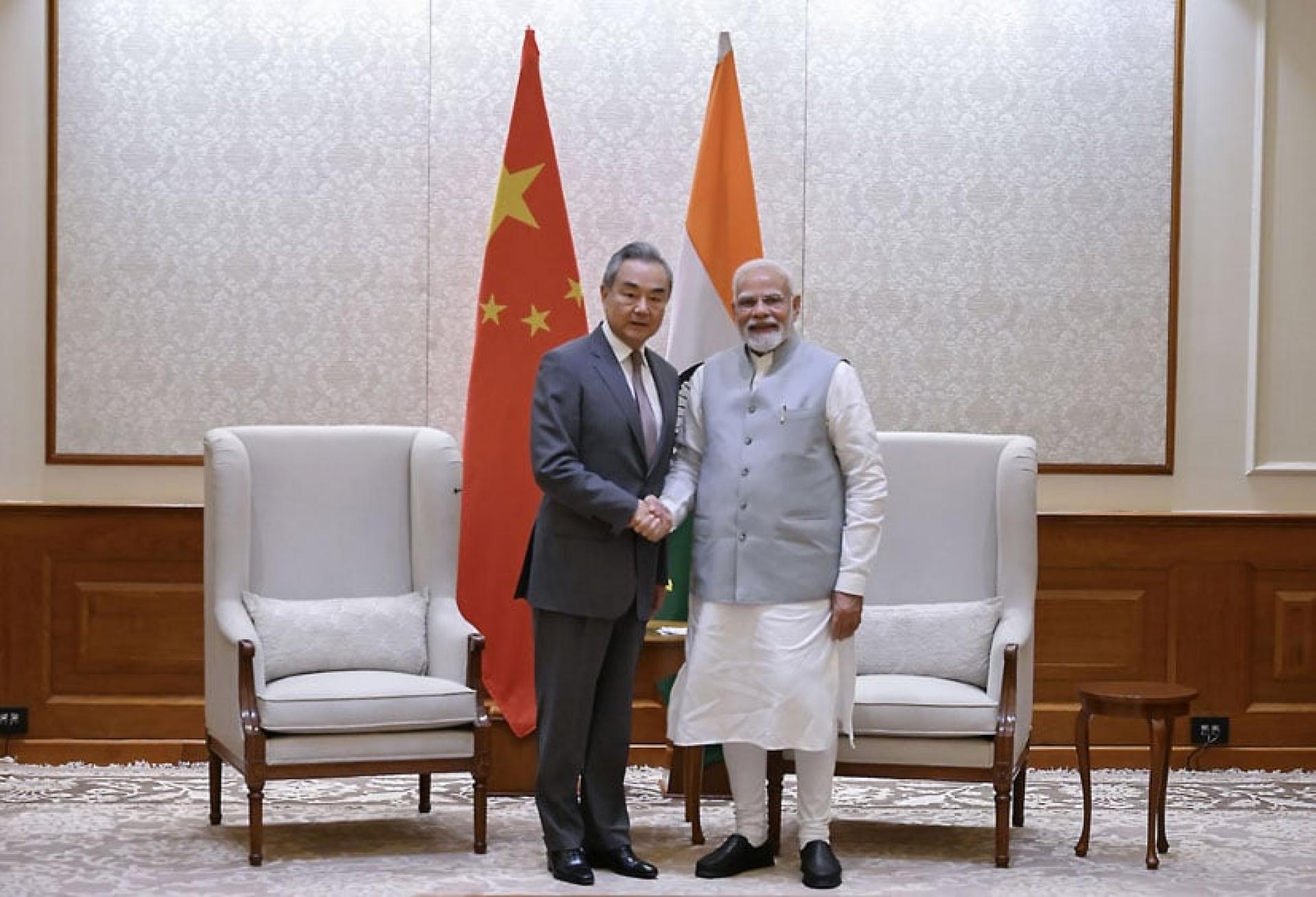On the 19th, Indian Prime Minister Modi met with Wang Yi, member of the Political Bureau of the CPC Central Committee and Director of the Central Foreign Affairs Office, at the Prime Minister's Residence in New Delhi. Modi expressed his strong anticipation to visit China and attend the Shanghai Cooperation Organization Summit in Tianjin.
Wang Yi stated that this visit to India, made at invitation to attend the Special Representatives’ Meeting on the boundary issue, also serves as preparation for high-level interactions between the two countries. He further emphasized that regardless of any circumstances faced, China and India should persist in positioning each other as partners rather than rivals, prudently manage differences, and not let boundary disputes affect the broader relationship between the two nations.
Modi said that India and China are partners, not rivals, and that both face the shared task of accelerating development. He called for strengthened exchanges, increased mutual understanding, and expanded cooperation, so the world can sense the enormous potential and bright prospects of India-China cooperation. Both sides should also prudently manage and address boundary issues, ensuring differences do not become disputes. He mentioned that this year marks the 75th anniversary of India-China diplomatic ties, and both sides need to view bilateral relations from a long-term perspective. The arrival of the "Asian Century" cannot happen without India-China cooperation. India will fully support China's work as the rotating presidency of the SCO, ensuring the success of the summit.
Wang Yi pointed out that through comprehensive and in-depth communication, both sides have reached consensus on the following: restarting dialogue mechanisms in various areas of bilateral relations, deepening mutually beneficial cooperation, upholding multilateralism, jointly addressing global challenges, and opposing unilateral bullying. On the boundary issue, both agreed to carry out normal management, maintain peace and tranquility in border areas, appropriately address sensitive locations, and, where conditions permit, initiate negotiations on boundary demarcation to form new consensus. He believes that under the current international situation, the strategic significance of China-India relations is even more pronounced, and the strategic value of China-India cooperation is even more prominent. Both sides will earnestly implement the important consensus reached by both leaders, strengthen exchanges and cooperation in various fields, and promote steady and long-term development of China-India relations.
